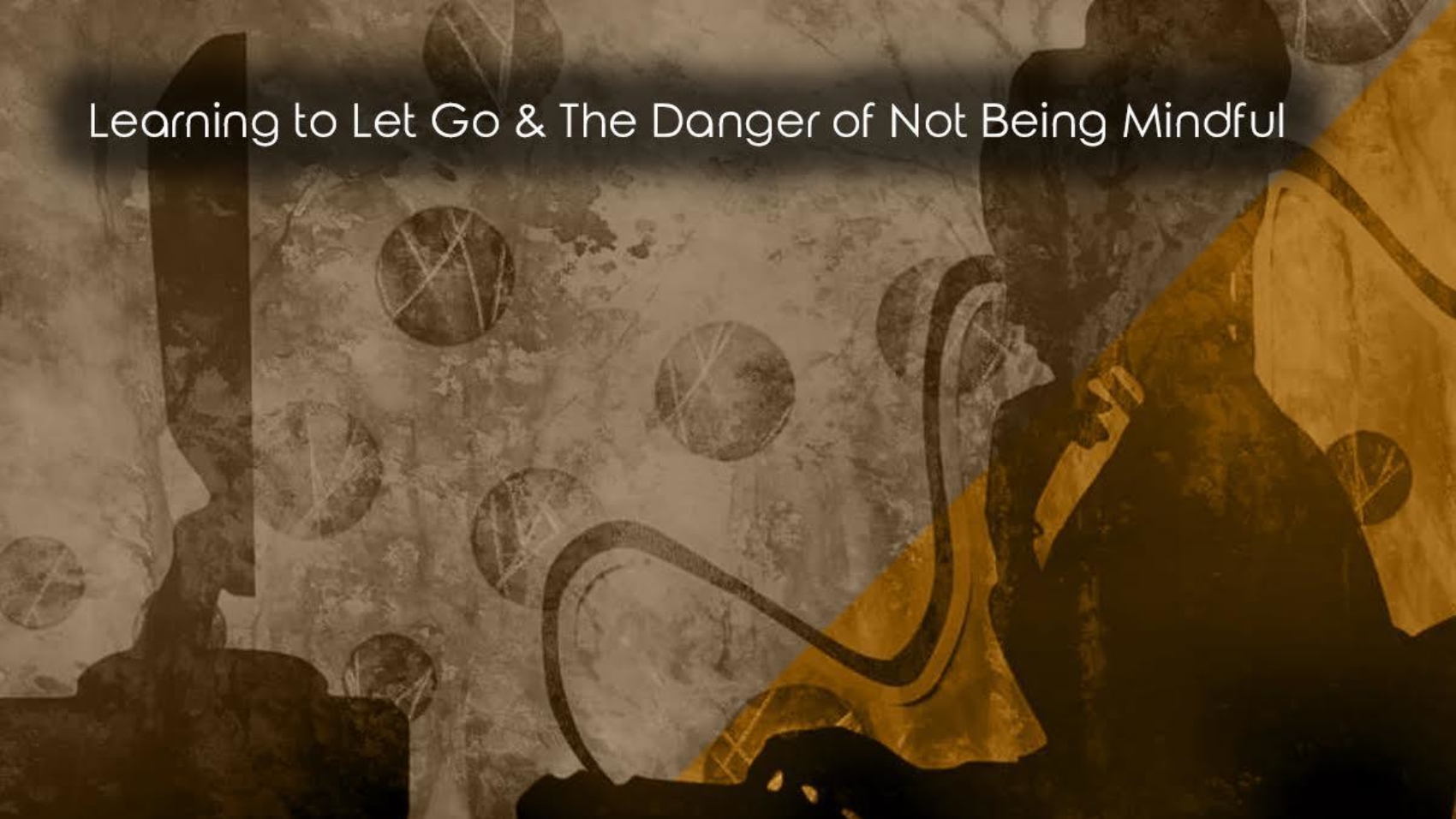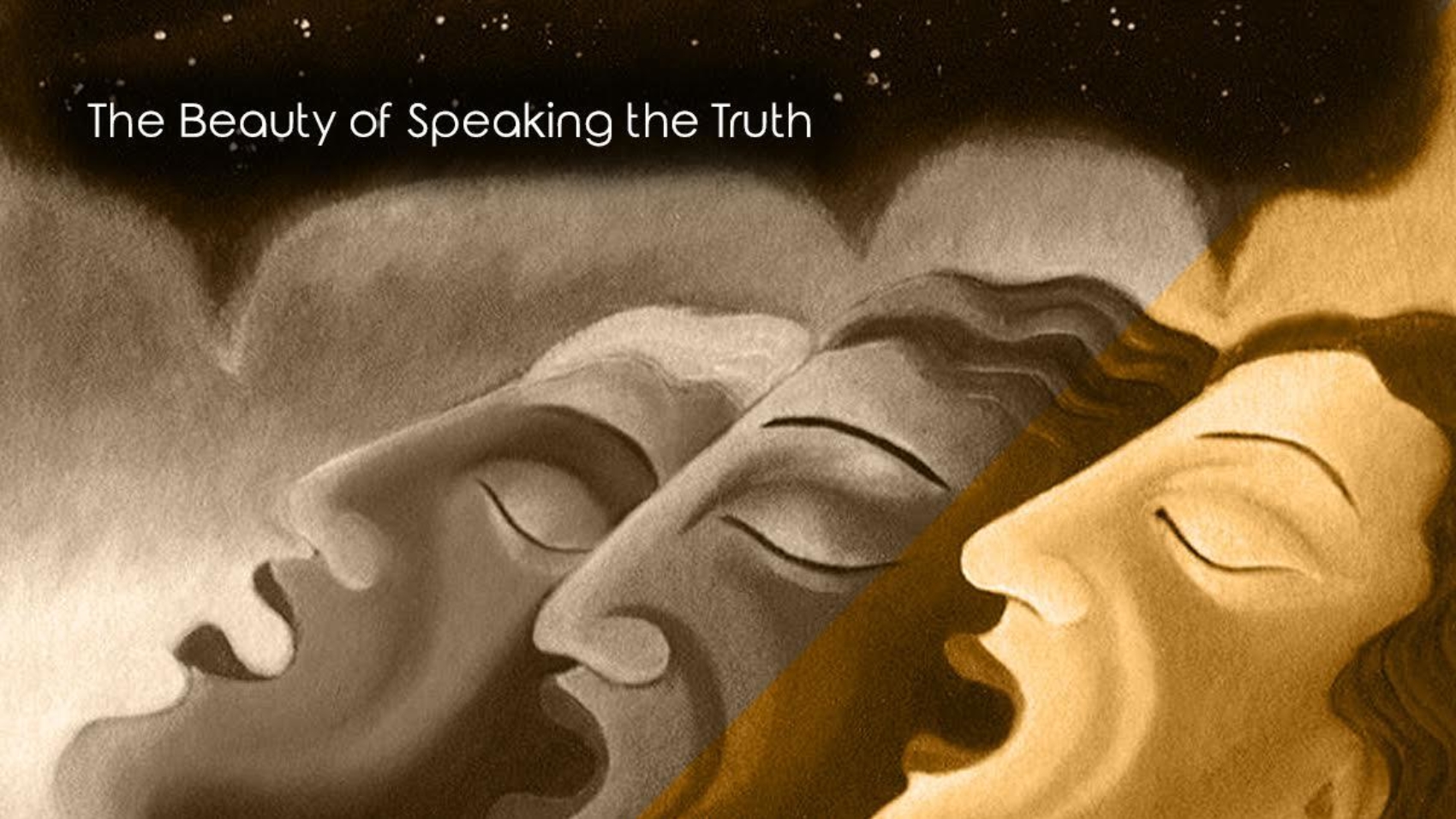The nature of our mind is, it gets attracted to pleasant things. With regard to this nature, the mind is unfulfilled with desires. With regards to pleasant things, the mind is unsatisfied all the time.
And people are caught up in a struggle to satisfy such a mind, a mind that is overpowered by desire. New inventions emerge every day, instant solutions for daily needs, competing with one another to find a place in our homes. Smartphones have brought the whole world under our fingertips. Doors for pleasant and agreeable form, sound, smell, taste and contact are just a little tap away. The world certainly has ‘developed’…or has it?
Regardless of all the facilities out there, we are still discontent and unsatisfied. The mind is more agitated than before, the world has become restless and problems arise in every corner. Why is it so? Why has the world lost the very happiness it was pursuing?
The ordinary lifestyle, the ordinary way of thinking is one thing; the truth is another thing. The ordinary way of thinking tries to find pleasure through pleasant things. But the truth is; pleasant things bring suffering. That’s the Lord Buddha’s marvellous realization. Because this is not understood, the world is agitated and faces troubles.
In this world there are various objects, among them there are beautiful things that arouse lust in our mind. And thoughts of such nature agitate the entire human world.
Arahant Aññākoṇḍañña Maha Thera
This is an idea of a sage, who has attained the non-declining happiness through realizing the noble teachings of the Lord Buddha. Like said above, the ordinary way thinks pleasure can be gained through pleasant things. But the Lord Buddha says, the reason for our agitation is from the pleasant objects that we seek all the time. Why do these pleasant objects cause agitation? Because they arouse desire. What are those objects that generate desire and make us agitate so much?
Bhikkhus, there are these five cords of sensual pleasure. What are the five? Forms cognizable by the eye that are wished for, desired, agreeable and likeable, connected with sensual desire, and provocative of lust. Sounds cognizable by the ear…Odours cognizable by the nose…Flavours cognizable by the tongue…Tangibles cognizable by the body that are wished for, desired, agreeable and likeable, connected with sensual desire, and provocative of lust. These are the five cords of sensual pleasure.
Maha Dukkhakkhandha Sutta – MN 13
Isn’t the entire world seeking happiness by running behind these objects? Aren’t all these problems due to these things? Are these the real ‘sensual pleasures’ in the world?
Now, you may think that if these are the sensual pleasures, how could we change the world? The good news is that these five things are not sensual pleasures, these are known as the five ‘cords’ of sensual pleasures. Then, where or what is this sensual pleasure that agitates the beings?
Saṅkapparāgo purisassa kāmo,
Nete kāmā yāni citrāni loke;
Saṅkapparāgo purisassa kāmo,
Tiṭṭhanti citrāni tatheva loke;
Athettha dhīrā vinayanti chandanti.
The passion for his resolves is a man’s sensuality,
not the beautiful sensual pleasures found in the world.
The passion for his resolves is a man’s sensuality.
The beauties remain as they are in the world,
while the wise, in this regard,
subdue their desire.
Nibbedika Sutta – AN 6.63
Which means, what we identify as ‘sensual pleasure’, is the lust that arises (mentally) for the five ‘cords of sensual pleasures’. This is the ‘sensual pleasure’ that made us suffer in this long journey of sansara. That’s why the Lord Buddha explained this sensual pleasure as a flood, a torrent. And also as a hindrance, as a fetter, as a taint, as clinging, as an underlying tendency, that tied us to the sansara. Our mind gets attracted to it very easily because the mind is used to getting attracted to sensual pleasures throughout the sansara. But it does not happen without a reason, without a cause. Letting it happen is our fault and is the reason.
Bhikkhus, the Nature of the mind is like this, whatever a Bhikkhu frequently thinks and ponders upon, that will become the inclination of his mind. If he frequently thinks and ponders upon thoughts of sensual desire, he has abandoned the thought of renunciation to cultivate the thought of sensual desire, and then his mind inclines to thoughts of sensual desire.
Dvedhāvitakka Sutta – MN 19
Observe yourself for a moment, isn’t this what happens? If we just take one day, how many thoughts are thought about pleasant things? The mind is inclined to sensual pleasures due to this reason. That happens because we are used to this pattern of thinking.
To get attracted to pleasant things, there should be happiness in sensual pleasures, isn’t it? Yes, in sensual pleasures there is some gratification. It is not devoid of pleasure.
Now the pleasure and joy that arise dependent on these pleasant five cords of sensual pleasure are the gratification in the case of sensual pleasures.
Maha Dukkhakkhandha Sutta – MN 13
The mind is obsessed with this gratification. The world is running behind this gratification. The Lord Buddha compared this gratification to a bone, without flesh and blood, given to a dog, and to the gratification you get when you scratch a rash.
All the gratifications, enjoyments born out of sensual pleasures, end with, or are followed by suffering because we are deceived by the distorted view; seeing suffering as pleasure. This is why all the pleasures in the world are followed by agitation, tiredness and panic, all because of the distorted view. Didn’t the Blessed One reveal the danger and how low sensual pleasures are, in the first Dhamma sermon at Baranasi?
Yocā’yaṁ kāmesu kāmasukhallikānuyogo hīno gammo pothujjaniko anariyo anatthasaṁhito
There is addiction to indulgence in sense-pleasures, which is low, coarse, and the way of ordinary people, not practised by noble ones, and is unbeneficial
Dhammacakkappavattana Sutta – SN 56.11
If we are running behind something very low, not meaningful, something ordinary and worldly, if we dedicate our entire life for it, how will we ever get something valuable in the end? How to go beyond worldliness?
Kāmāhi citrā madhurā manoramā,
Virūparūpena mathenti cittaṃ
Sensual pleasures, varied, sweet, delightful,
In many different ways disturb the mind
Arahant Raṭṭhapāla Maha Thera
The danger that is caused by sensual pleasures, that has only a little gratification and enormous suffering, is limitless. The Lord Buddha expounded in many suttas like Mahadukkhakkhanda sutta, Chula dukkhakkhanda sutta that the sorrow, the sadness, the grief that arise in this life is because of the sensual pleasures. Read those wonderful suttas that enlighten your minds from unawareness of life. Further, the Lord Buddha expounded that this sensual pleasure has the ability to lead you to more suffering in the life after death.
“Dear Bhikkhus, with sensual pleasures as the cause, sensual pleasures as the source, sensual pleasures as the basis, the cause being simply sensual pleasures, people indulge in misconduct of body, speech, and mind. Having done so, on the dissolution of the body, after death, they reappear in states of deprivation, in an unhappy destination, in perdition, even in hell.
“Dear Bhikkhus, Now this is a danger in the case of sensual pleasures, a mass of suffering in the life to come, having sensual pleasures as its cause, sensual pleasures as its source, sensual pleasures as its basis, the cause being simply sensual pleasures.
Maha Dukkhakkhandha Sutta – MN 13
The most worthy One, the supremely enlightened One revealed using many similes the deceiving nature of the sensual pleasures that lead beings to miserable states.
Sensual pleasures are like a ‘vulture carrying a lump of meat’. While carrying that lump of meat other vultures chase behind. So until it drops the piece of meat, it will suffer mentally and physically.
Sensual pleasures are like ‘torch made of grass or leaves gathered together’. The person carrying it suffers from the heat it emanates. To be free from that suffering that person has to let go of the torch, throw it away.
Sensual pleasures are like a ‘dream’. Even though we receive so much wealth in dreams, when we wake up there is nothing. Similarly, at the time of death, the sensual pleasures we experienced seem like a dream.
Sensual pleasures are like ‘something borrowed.’ Something taken as a loan does not belong to us. The owner could take it back at any time. In the same way we will leave everything at death.
Sensual pleasures are like ‘fruits of a tree.’ While a man eats fruits on the top of a tree, another tries to cut down that tree. So, if the man on top of the tree wishes to live long, should climb down as soon as possible to avoid great suffering or death.
Likewise in various ways the Lord Buddha revealed the dangers of sensual pleasures. Please read the Potaliya Sutta (MN 54).
If sensual pleasures are with this much horrific consequences, a person who seeks happiness should protect the mind from being overwhelmed by sensual pleasures. How to protect the mind from sensual pleasures? Even our great Bodhisattva in his last life, before becoming the Samma Sambuddha, did it with great effort. Our solution lies in the way how the Bodhisatta directed his mind;
“Dear Bhikkhus, I abided thus, diligent, ardent, and resolute, a thought of sensual desire arose in me. I understood thus: ‘This thought of sensual desire has arisen in me. This leads to my own affliction, to others’ affliction, and to the affliction of both; it obstructs wisdom, causes difficulties, and leads away from Nibbāna.’ When I considered: ‘This leads to my own affliction,’ it subsided in me; when I considered: ‘This leads to others’ affliction,’ it subsided in me; when I considered: ‘This leads to the affliction of both,’ it subsided in me; when I considered: ‘This obstructs wisdom, causes difficulties, and leads away from Nibbāna,’ it subsided in me. Whenever a thought of sensual desire arose in me, I abandoned it, removed it, did away with it.
Dvedhāvitakka Sutta – MN 19
The blessed One said that when contemplating wisely in this manner, all thoughts connected to sensual pleasures were eradicated. Therefore, to protect our mind which is prone to be deceived by sensual pleasures, we should contemplate in the same way. Also by encouraging thoughts of renunciation we can pull our minds from running behind sensual pleasures.
“Bhikkhus, whatever a bhikkhu frequently thinks and ponders upon, that will become the inclination of his mind. If he frequently thinks and ponders upon thoughts of renunciation, he has abandoned the thought of sensual desire to cultivate the thought of renunciation, and then his mind inclines to thoughts of renunciation.
Dvedhāvitakka Sutta – MN 19
By maintaining the mind in this manner, by making a cause in this manner, we will be able to free ourselves from sensual pleasures.
“Dear Bhikkhus, what is the escape in the case of sensual pleasures? It is the removal of desire and lust, the abandonment of desire and lust for sensual pleasures. This is the escape in the case of sensual pleasures.
Maha Dukkhakkhandha Sutta – MN 13
In this manner, the Lord Buddha perfectly expounded about sensual pleasure out of compassion. On one occasion, the Lord Buddha said to a Brahmin, by the name Janussoni, that if someone is unable to eradicate lust for sensual pleasures that person will grieve and suffer when facing death.
But if a person has eradicated lust for sensual pleasures, he/she will not suffer at death. If someone eradicates lust for sensual pleasures by establishing him/herself in the Buddha’s dispensation, that person will be free from the sufferings of sensual pleasure for good. The Lord Buddha’s teachings have such power.
The only reason behind your immense suffering, physical and mental, is the sensual pleasures. Hence, let go of the impermanent sensual pleasures. Do not fail to attain the supreme happiness by being caught up in small happiness.
Arahant Sumedhā Maha Theri
May you gain the ultimate assurance of the great teachings of a Buddha!





